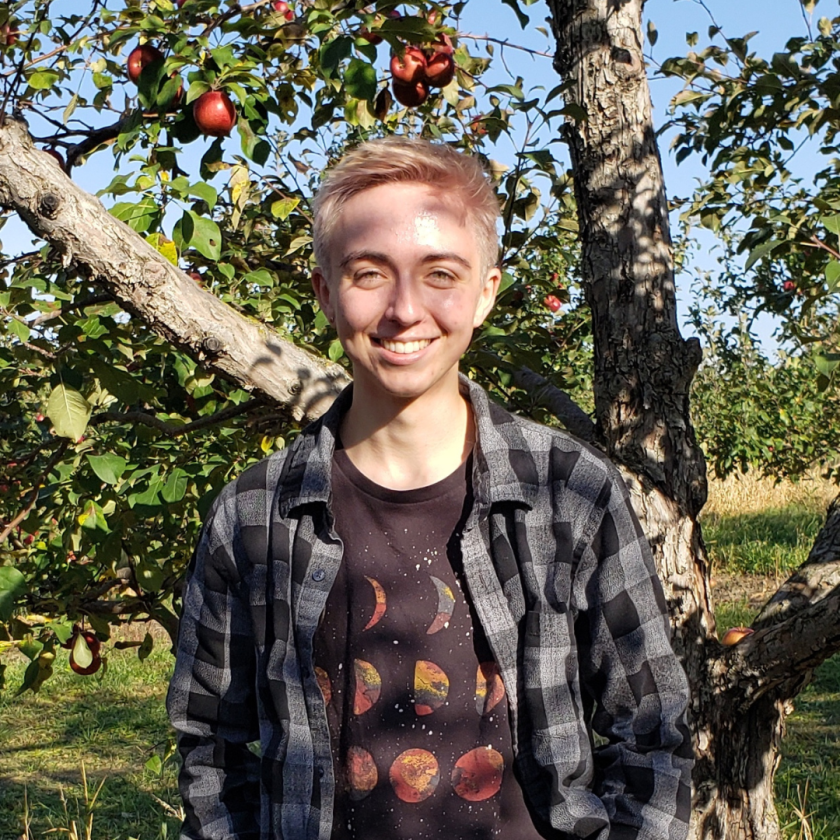
It was late 2021 during a Quatrefoil Library board meeting when Evan Allgood found what was missing in his role as a software engineer.
"I have degrees in computer science and English, and I had tried a few paths to figure out exactly what I wanted to do, but I was having a hard time finding a career that combined all my interests," said Allgood, MSLIS student. "Volunteering at Quatrefoil showed me that, through information science, I could combine everything that inspires me: accessibility, literature, history, technology, databases, and community building."
He enrolled as a Leep student at the iSchool because of its established, synchronous online program and because he wanted his newly acquired skills to benefit his community in Minneapolis, Minnesota.
"While a lot of programs moved online just before or during the COVID-19 lockdown, the iSchool has had an online program for decades," Allgood said. "I knew that I wanted a quality education that would allow me to stay rooted in my community, continue volunteering, and give me the flexibility to learn on my own time."
During his studies at the iSchool, Allgood has pursued archival librarianship, emphasizing archival accessibility of marginalized histories, community-driven scholarship, and representation in the archives and in literature. He has amassed an extensive resume of scholarly roles across these interests, including:
- project coordinator and research assistant for the Community Data Clinic, managing undergraduate and graduate researchers on three projects;
- graduate assistant for Library Trends, serving as assistant managing editor and researcher;
- graduate research assistant, examining the creation of LGBTQ+-related archival finding aids with Assistant Professor Travis L. Wagner;
- archival processing intern for Hogan Archive of New Orleans Music and New Orleans Jazz at Tulane University; and
- practicum student at the University of Victoria Transgender Archives.
Allgood also conducts research with Invisible Histories, a nonprofit organization focused on archiving Southern queer history. He is working with information professionals across the United States to create a database of LGBTQ+ Southern archival collections, housed both in the South and outside of it. This work has greatly influenced Allgood's thesis, which he began this semester.
His curiosity and indefatigable approach to volunteering, working, researching, and studying have brought Allgood—slated to graduate in May 2025—to two, diverging pathways: pursuing a doctoral degree or finding a career in archives.
"As a PhD student, I would focus on the ways transgender individuals historically built (and currently build) networks of knowledge and care, as well as LGBTQ+-focused reparative archival work and the ethical considerations around digitizing LGBTQ+ historical materials," said Allgood. "As an archivist, I would also like to focus on reparative archival work and ethical considerations around digitization and accessibility."
While his studies and work occupy most of his time, Allgood manages to find opportunities to relax. He enjoys knitting, playing Dungeons and Dragons, and walking around one of Minnesota's nearly 12,000 lakes with his partner and their dog, Kodiak.